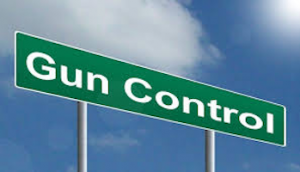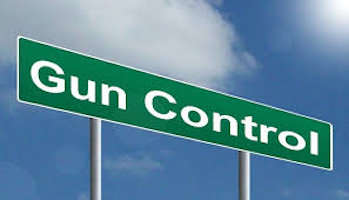 Gun control policy is inherently unjust. The reasons for this have to do with what is meant by “gun control.”
Gun control policy is inherently unjust. The reasons for this have to do with what is meant by “gun control.”
The Issue behind Gun Control
I think of gun control as all those rules and regulations that are aimed at restricting access to guns. Gun control does not include safety regulations aimed at taking defective guns off the market, nor does it include laws that prohibit firearms to dangerous users, such as children or people with records of relevant sorts of crime or mental illness. The National Rifle Association is intransigently opposed to gun control, yet it is not opposed to the dangerous user exception (as it is sometimes called) to our Second Amendment rights.
Gun control does not include safety regulations to prohibit firearms to dangerous users such as children or people with records of violent crime or mental illness.
Yet a wide gulf does separate opponents of gun control from its advocates. Advocates think there is a big problem in the land, and the problem is guns. There are just too many of them. Opponents, on the other hand, are against restricting access (by “access” I mean, of course, access on the part of competent, law-abiding adults).
Now, there are things in the world for which this kind of restriction does make sense to some extent. For instance, there are environmentalists who really detest internal combustion engines that burn fossil fuel, such as the one I turn on whenever I start my car. They believe there is an evil in the land, and it is cars. The problem, as they see it, is not the drivers of the cars, it is the cars themselves. If a car is manufactured and used for its intended purpose, it spews clouds of harmful effects into the world. They think there should be regulations that seriously restrict access to these things. Being a competent and law-abiding adult would be no defense against such regulations. Your access to cars should be coercively restricted, regardless of who you are or how you behave. After all, this is not about you, it’s about the cars.
Though I do not agree with it, I believe automobile restrictionism is, to some extent, a reasonable view. I do not, however, think that gun restrictionism is a reasonable view. Guns are simply not like cars in the relevant ways. The 38 caliber Smith and Wesson revolver I inherited when my father died 12 years ago has never hurt anyone, neither man nor beast, though it is always in my backpack when I go into the deep woods. (I am assuming that the puffs of hot gas it emits when fired are negligible as a source of pollution.)
I also think that my handgun is not relevantly like the many things which, unlike automobiles, are routinely controlled by law in order to discourage people from indulging in them, such as pornography, alcohol, tobacco, various other drugs, prostitution, and gambling. Unlike alcohol and tobacco, my revolver is non-toxic. And it does not seem to have had a bad effect on my moral character – a feature some people think designates pornography and prostitution as worthy of being legally restricted. Unlike gambling, it does not present me with the prospect of luring me into compulsively wasting money. I have to admit, however, that people who favor restriction are responding to a feature that guns do have.
Guns and Danger
Gun are dangerous. This is obviously true. Guns are actually designed to destroy whatever they are aimed at: bad guys, white-tailed deer, paper targets, whatever it might be. But guns are not dangerous in the way my car is. Every single time I take a trip in my car, it contributes to the pollution to which we all contribute. While the amount of this contribution is smaller than it was when I learned to drive decades ago, it is still significant. Nothing like this is true of the handgun in my pack, nor of the ammunition that is also stowed there (in a separate plastic container). Surely this is obvious. More importantly, when I am camping alone deep in bear country, my handgun makes me feel more safe, not less.
Alright, I admit that my notion of a loaded .38 effectively scaring off a menacing bear might mainly be a matter of wishful thinking, but the logic behind the notion illustrates something important about the nature of danger and of the related idea of safety. Given that we live in a world in which different species, and different human beings, can come to lethal conflict, a single object can be both dangerous and safety-enhancing at the same time. More than that: it can enhance safety because it is dangerous. The logic here is, in a case of conflict between A and B – whether the conflict exists right now or merely looms as a worrisome possibility – something can enhance the safety of A precisely by posing a danger to B.
Some things serve as protection precisely because they are dangerous to others.
Isn’t this why wealthy and powerful people have bodyguards? The President of the United States is surrounded at all times by agents armed with lethal force. Because these agents are so lethal, he is safer. Not perfectly safe, of course, since these things are a matter of degree, but he is safer than he would be without these dangerous people.
However, there are, of course, people who have security concerns but cannot afford bodyguards. They may be small business owners or people who live in dangerous neighborhoods. Many of these people choose to purchase firearms for personal protection.
How many? That is impossible to say for certain, but according to the Crime Prevention Research Center, there are now over 14 million permits to carry a concealed handgun in the United States. Since such permits would have little value for hunting purposes (or for criminal purposes, for that matter), this indicates that a very large number of people are at least on some occasions carrying guns for self-defense. As a matter of fact, this number is misleadingly low, since there are now 14 states that practice constitutional carry, in which legitimate gun owners do not need a permit to carry a concealed weapon. The logic behind what these people are doing is obvious: once one has mastered its effective use – a skill that is not difficult to acquire – a firearm can enhance one’s safety.
A Matter of Justice
Gun control is a response to a real problem. There are gun-wielding individuals whose vicious and irresponsible behavior is a constant danger to the rest of us. But there are also responsible citizens whose guns have the opposite effect, making them and those under their protection safer. To coercively restrict access to guns on the part of everyone, rather than going after those who are morally responsible for inflicting risk of grievous harm on the rest of us, means penalizing the innocent for things that others do. This, I submit, is simply unjust.

Lester H. Hunt
Lester H. Hunt, Professor Emeritus of Philosophy at the University of Wisconsin, Madison, is co-author, with David DeGrazia, of Debating Gun Control: How Much Regulation Do We Need? (Oxford Univ. Press, 2016).
This article was originally published on FEE.org. Read the original article.
